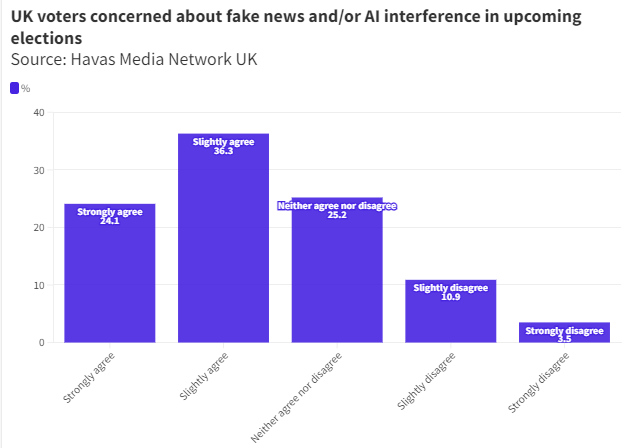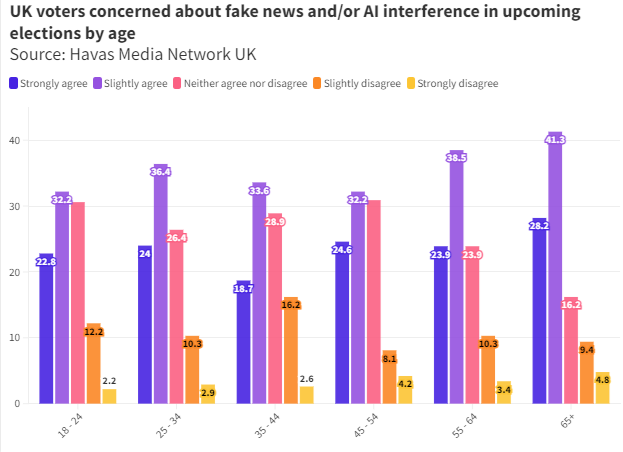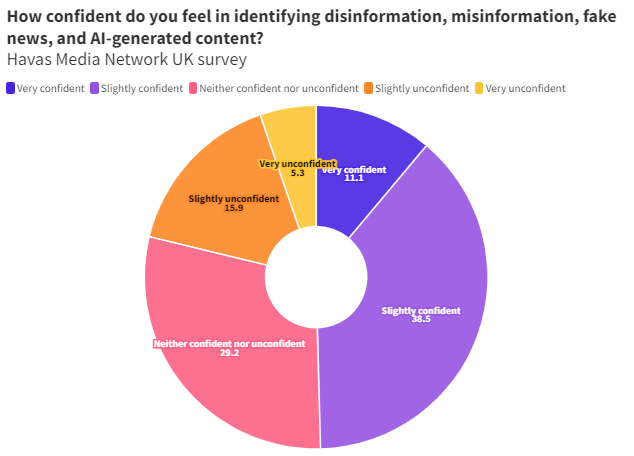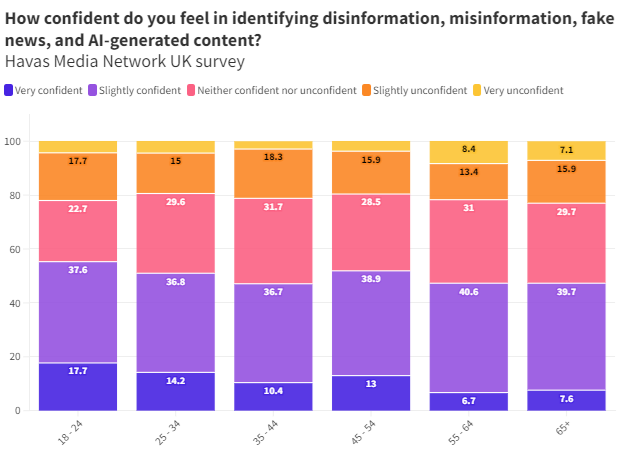Over half of UK voters concerned by fake news and AI in upcoming election


More than half of UK adults are concerned about fake news and/or AI interference in the upcoming election, a new study has found.
Havas Media Network UK surveyed a nationally representative sample of 1,500 people over the age of 18 from 2 May (the day of local elections) until 7 May to examine shifting consumer attitudes and behaviours during election periods and the potential impact on brands and consumer spending.
The research found that 60.4% of respondents agreed they were concerned about fake news and/or AI interference in the upcoming election, with 24.1% saying they “strongly agree” and 36.3% saying they “slightly agree”.

When divided into age ranges, a higher proportion of those aged 45 and over said they were concerned, with 25.9% strongly agreeing and 37.9% slightly agreeing with the statement, compared with 21.8% and 34.2% respectively in the 18-44 category.

By gender, the survey found that 27.6% of men were the most concerned versus 20.8% of women.
Another question looked at how confident people felt in identifying disinformation, misinformation, fake news and AI-generated content.
Nearly half said they felt “very confident” or “slightly confident”, at 11.1% and 38.5% respectively. Just over a fifth felt either “slightly unconfident” or “very unconfident”.

Older respondents reported feeling more confident overall in identifying this type of content compared with younger people.
Paul Bland, chief digital officer, at Havas Media Network told The Media Leader that the widespread availability of generative AI had “genuine implications for misinformation and deepfakes”, with accounts of fake news across different mediums already being seen in in the US and India where the election season is well underway.
“From fake robocalls of Joe Biden discouraging voting in the US to deepfake videos of Bollywood celebrities criticising India’s prime minister Narendra Modi. There will almost certainly be more accounts of this over the coming months, and beyond election cycles,” he added.
Bland stressed the advertising industry continued to combat misinformation with platforms and partners actively preventing, blocking and restricting it through ad and content verification and fact-checking.

The research also covered brands’ role during elections.
Asked what they would want from a brand’s messaging or advertising during heightened political coverage in the media, just over a quarter (25.2%) selected “be serious and respectful, people are struggling”, followed by “say nothing” (22.6%) and “run more offers/discounts” (22.1%).
Jackie Lyons, chief planning officer at Havas Media Network UK, said: “It’s unlikely to be a surprise to many that political distrust is set to permeate all areas of the economic landscape in the coming weeks. With 28% of consumers expecting brands to play a role but two-fifths thinking they shouldn’t, getting involved — or not — clearly carries risk.”
She stressed that avoiding contribution to “the trust deficit” was “paramount” and, in the context of “synthetic news, sensationalism and over-reliance on social media”, publishers that can provide trustworthy information have an opportunity to attract new readers.
